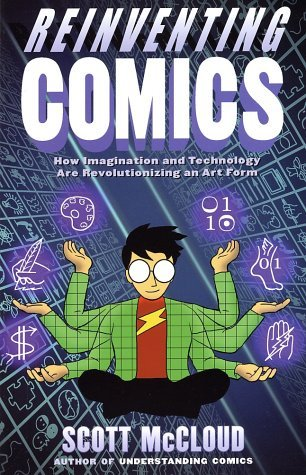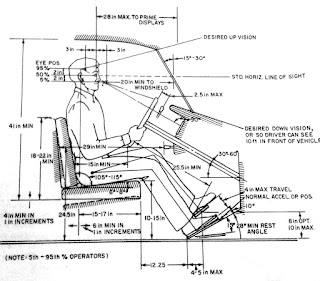Review: Reinventing Comics by Scott McCloud
Originally published in 2000, this book now feels like a combination of verifying its prediction and forecasting more distant future. Over 20 years later, I can still feel the book speaks to me, the reader, and at the same time spewing more questions to ponder.
 |
| image from Goodreads |
This will be a short review, a bit warming up for me who has been absent from this blog since pandemic started. I have provided short comments on my Goodreads page about this book, but I thought this blog will a better place to write more insights from my point of view.
I read Understanding Comics, Scott's previous book many many years ago. I have to admit, although I'm an avid comic reader, mostly manga, I didn't know much about the art of comic itself. Immersed in good story and art, and poof, everything feels natural. But when you want to create one, it's the best time to take a step back and learn the basics. So when I was looking for more inspiration for my fadilahinlondon.com comic, I returned to that book, indulging more knowledge, and wondering when I could get the other book, Reinventing Comics.
So here it is, finally the Indonesia translation version available to purchase in early 2022. I bought the translated version published by KPG, Indonesia, although you can also read it for free on archive.org (register as a member for free).
The first part of this book recaps Understanding Comics and then slowly transitions to the historical background of comics, well, mostly North America. The second half of the book talks about revolutions in comics, again focusing on North America. I guess this book gives general ideas abut how comics work in North America, economically and creatively, and leaves big hole on other parts of the world. Given more exposure I had from Japanese comics, knowing how their serialization works, and having some understanding on the comics (printed and online) industry in Indonesia, I couldn't stop myself to compare them. Hence, comic industry has come a long way from manual labour, to Ford-like system, to digital, and to the internet era.
Some of the revolution ideas are still relevant today, e.g. creators' rights, minority representation, and genre diversity, which can be found even in mainstream comics. However, the most notable differences that we can see today (as per this piece is being written) is the rise of online comic platforms. These platforms, such as Webtoon and Tapas, have contributed in the growth of indie comics. Along with the monetisation options more available, including Patreon, Ko-fi, etc, it seems the world will never running out of comic creators and new titles.
At the same time, technology has made it even easier to produce comics at home. In this book, tablet with display and pen technology was in infancy, as mentioned and tried by the author. Look at us now, even people can draw on their smartphones and tablets. Wacom technology to use non-battery pen and tablet can be found in other brands, such as Samsung Note has created a more attractive market with even lower price than Wacom products. Apple iPad also has become a must-have item for creatives, not only for ideation, but some artists even ditched their computer completely and produce arts with only iPad and Apple Pencil.
At the moment, creating arts with AI is a hot topic. One of the recent news is about an AI generated art piece won a contest. Isn't interesting? We're witnessing innovations and I keen to see what will happen next, including comics. Maybe Scott McCloud will write a revised edition?


Comments
Post a Comment